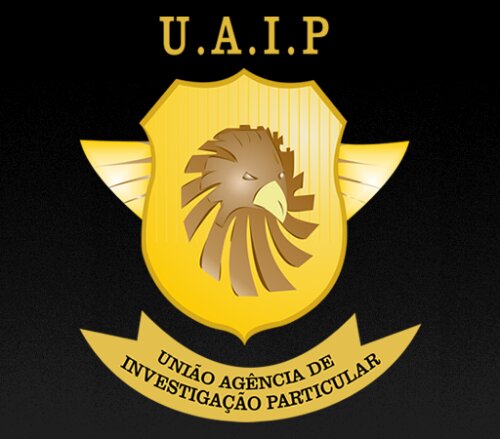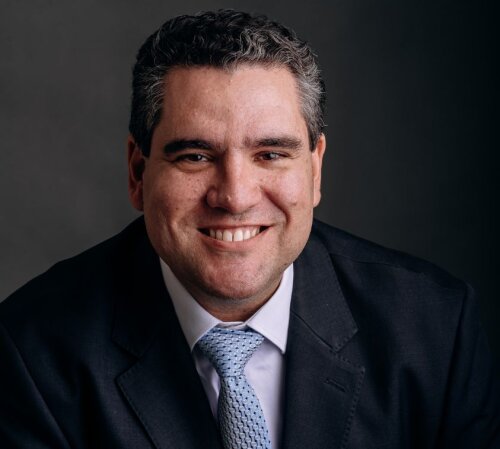Best Private Client Lawyers in Brazil
Share your needs with us, get contacted by law firms.
Free. Takes 2 min.
Or refine your search by selecting a city:
List of the best lawyers in Brazil
About Private Client Law in Brazil
Private Client law in Brazil is a specialized area focused on helping individuals and families manage their personal legal matters. This field covers legal advice related to wealth management, succession planning, tax matters, real estate, estate administration, family law, and the protection of personal assets. The objective is to protect assets, ensure their correct transfer between generations, reduce tax impacts, and provide legal solutions tailored to personal and familial circumstances. Whether you are a Brazilian resident, an expatriate, or an investor with interests in Brazil, Private Client law offers guidance for both personal and cross-border challenges.
Why You May Need a Lawyer
A lawyer specializing in Private Client matters can provide support in several situations, such as:
- Planning your estate: Preparing wills, trusts, and broader succession plans to ensure assets are distributed according to your wishes.
- Inheritance disputes: Handling disagreements among heirs or questions about the validity of a will.
- Tax advice: Structuring your assets to minimize tax liabilities, both on ongoing income and during inheritance processes.
- Family transitions: Managing divorce, separation, adoption, or custody matters, with a focus on preserving family wealth.
- Real estate transactions: Navigating the legal steps for buying, selling, or inheriting property.
- Cross-border issues: Complexities arising from having assets, heirs, or family members in different countries.
- Asset protection: Safeguarding wealth from future disputes or claims.
A Private Client lawyer ensures that your affairs are managed legally and efficiently, helping to avoid costly errors or future disputes.
Local Laws Overview
Brazilian Private Client matters are primarily governed by the Civil Code, with supplementary regulation from tax, real estate, and family law statutes. Some key aspects include:
- Forced heirship: Brazilian law mandates that a portion of an estate (legítima) must go to certain heirs, limiting complete freedom to distribute assets by will.
- Taxation: Inheritance and gift tax (ITCMD) is imposed by the states. Tax rates and rules may vary depending on residency and asset location.
- International assets: Residents must declare foreign assets and income for tax purposes. Cross-border inheritance is subject to specific procedures.
- Marriage regimes: The chosen marriage property regime affects how assets are split in divorce or succession. Brazil recognizes several regimes, including community property and separation of assets.
- Real estate ownership: Requirements exist for registering property transfers, which are critical for inheritance and sale transactions.
Local procedures can be complex, particularly in matters involving multiple jurisdictions, multiple marriages, or blended families.
Frequently Asked Questions
What is “forced heirship” in Brazil?
Forced heirship means that a fixed portion of a deceased person's estate (currently 50 percent) must be inherited by certain close family members, such as children, spouse, or parents, regardless of any provisions in a will.
Can I leave all my assets to anyone I wish in my will?
No. You can only freely dispose of half of your estate. The other half is reserved for forced heirs as per Brazilian law.
What taxes apply to inheritances in Brazil?
Inheritance and gift tax (ITCMD) is levied by each state. The rates and exemption limits vary, but beneficiaries are generally required to pay ITCMD on inherited assets.
How can foreigners inherit property in Brazil?
Foreigners can inherit property, but the process may involve additional bureaucracy and occasionally require government approval for rural property. Legal representation and consular documentation are often needed.
What happens if someone dies without a will?
If there is no will, Brazilian law determines heirs and divides assets according to set rules. Forced heirship applies, and the order of succession is dictated by the Civil Code.
How can assets located abroad be included in a Brazilian succession process?
Assets abroad must be declared and may be subject to local and Brazilian procedures. Double taxation can sometimes occur, so it is essential to plan succession with cross-border advice.
What are the main types of marriage property regimes in Brazil?
Common regimes include full community property (comunhão universal), partial community property (comunhão parcial), separate property (separação total), and participation in final accrual (participação final nos aquestos). Each affects division of assets differently in divorce and inheritance.
How is a will made valid in Brazil?
Wills must follow strict formalities, generally requiring witnesses and notarization. There are different forms of wills, including public, closed, and holographic wills.
Can trusts be set up in Brazil?
Trusts are not recognized under Brazilian law, but Brazilians can benefit from trusts set up abroad. Proper legal and tax advice is necessary for such arrangements.
How can I minimize taxes on inheritance?
Careful planning, considering property regimes, gifts during lifetime, and proper estate structuring can help. Professional legal and tax advice is highly recommended to reduce unnecessary tax liabilities.
Additional Resources
For further information and formal procedures, these resources can be helpful:
- OAB (Ordem dos Advogados do Brasil): Brazil's national bar association offers directories of licensed attorneys and legal information.
- Registry of Deeds and Notary Public Offices (Cartório): Handle property, wills, and probate registrations.
- State Finance Secretariats: Each state provides ITCMD tax guidance and forms.
- Family Courts: For family law disputes and succession cases.
- Federal Revenue Service (Receita Federal): Oversees tax compliance, including declarations of foreign assets.
Next Steps
If you need legal assistance for a Private Client matter in Brazil:
- Gather documents relating to your personal, family, and asset situation.
- List your main questions and goals before meeting with a lawyer.
- Contact a specialist Private Client lawyer, preferably one experienced in both local and international matters if necessary.
- Seek an initial consultation to assess your situation and clarify the steps and costs involved.
- Follow all official procedures and ensure you file required documents with the relevant authorities or notary offices.
Taking early and informed legal advice can help you protect yourself, your family, and your assets, offering peace of mind and preventing costly problems in the future.
Lawzana helps you find the best lawyers and law firms in Brazil through a curated and pre-screened list of qualified legal professionals. Our platform offers rankings and detailed profiles of attorneys and law firms, allowing you to compare based on practice areas, including Private Client, experience, and client feedback.
Each profile includes a description of the firm's areas of practice, client reviews, team members and partners, year of establishment, spoken languages, office locations, contact information, social media presence, and any published articles or resources. Most firms on our platform speak English and are experienced in both local and international legal matters.
Get a quote from top-rated law firms in Brazil — quickly, securely, and without unnecessary hassle.
Disclaimer:
The information provided on this page is for general informational purposes only and does not constitute legal advice. While we strive to ensure the accuracy and relevance of the content, legal information may change over time, and interpretations of the law can vary. You should always consult with a qualified legal professional for advice specific to your situation.
We disclaim all liability for actions taken or not taken based on the content of this page. If you believe any information is incorrect or outdated, please contact us, and we will review and update it where appropriate.
Browse private client law firms by service in Brazil
Brazil Attorneys in related practice areas.
Browse private client law firms by city in Brazil
Refine your search by selecting a city.
















